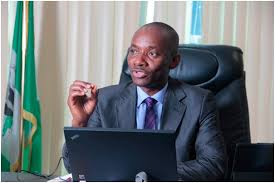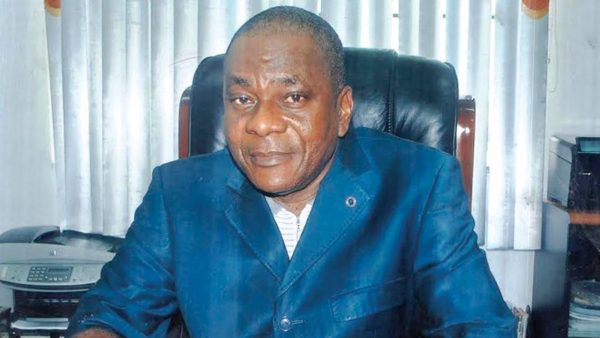
Nigerians who are already contending with erratic electricity supply, more hardship is coming as the Nigerian Electricity Regulatory Commission (NERC) plans to increase the Multi Year Tariff Order (MYTO).
Investigations revealed that the commission may soon advance from the MYTO II scheme with moves to increase the tariffs considerably.
The planned increase would not go across board for all the 11 electricity distributions (Discos) in the country. The reason behind the selection of the affected Discos is still unclear. Other Discos will experience a downward review of the tariffs.
It was learnt that NERC recently engaged the top leaders of Eko, Ikeja and Ibadan Disco in a tough meeting in Lagos recently, where some of the issues relating to the planned tariff review were discussed.

The Chairman, NERC, Sam Amadi, confirmed the planned tariff review to the media last week saying that the commission was making consultations and reviewing losses which would have implications on tariffs.
He stated: “NERC is currently undertaking both a one-off review of losses and the normal semi-annual minor reviews. We have been presenting the findings of the Aggregate Technical Commercial and Collection (ATC&C) review across the country.
“As we speak, the last four consultations are now going on in Abuja. We will shortly publish our findings on both reviews and the consequent effect on tariffs nationwide.”
According to the NERC website, the meeting on the final presentation of the findings of the ATC&C and its impact on retail tariff were expected to be concluded at yesterday’s meeting in Adamawa.
It stated: “Section 5.3 of the Multi-Year Tariff Order which provides for the determination of the cost of electricity sold by distribution/retail companies for the period 1st June 2012 to 31st May 2017, requires that given the urgency of the reform /privatisation agenda and also having regard to the unreliable data from which aggregate losses are calculated, it became necessary for the distribution companies to carry out the ATC&C data base study and customer verification to determine the baseline losses during the 12 months preceding handover to new owners, subject to the NERC’s revalidation and approval.
“ATC&C data base study and customer number verification exercise have been concluded by the Discos and verified by the commission.”
The tariff review would enhance the revenue base of the Discos to cushion the effects of investments and guarantee returns.
Earlier documents obtained from NERC showed that the MYTO 2 had reviewed the income of the 11 electricity distribution companies (Discos) to a total of about N405, 361 billion yearly.
A document indicated that the electricity tariff dropped the Discos revenue from N775 billion to N405 billion yearly.
But electricity consumers have raised concern about the recent tariffs, which they said were not commensurate with the services received from the utility firms, NERC insisted that the tariffs were cost-efficient.
The breakdown of the Discos revenue requirement before and after the last review showed that: Abuja Disco expected to earn N55.745 billion as against earlier N87.781 billion; Benin, N44.258 billion (against N69.608 billion); Enugu, N44.250 billion (against N69.494); Ibadan, N68.598 billion (against N105.372 billion); Jos, N28.531 billion (against N44.062 billion).
Others are: Kaduna, N41.594 (against N64.160 billion); Kano, N38.272 billion (against N60.426 billion); Eko, N54.432 billion (against N85.413 billion); Ikeja, N68.021 billion (against N110.049 billion); Port Harcourt, N32.944 billion (against N51.084 billion); and Yola N18.719 billion (against N28.359 billion).
Amadi recently explained to the media that the new tariff regime, Multi-Year Tariff Order (MYTO), was introduced based on the assessment of the cost of production projection of 9061 Mega Watts (MW).
“We look at the quantity expected and the cost of generating power, distributing and supplying power, and put it together to arrive at the price for 2014. So, this year, because of good economic base from the Federal Government, the price drops slightly to 7.8 per cent. We projected 13 per cent inflation rate, N178 foreign exchange to a dollar. Gas prices about $1.80, so we put all together and get about 11 to 15 per cent. That is why the fixed charges of all the Discos were reduced from what they should have paid in 2014. What should have been N1, 500 was then reduced to N750.”
He stressed that the tariff was to keep expected market to allow for investment because the investors required capital to expand infrastructure. So, NERC is focused on establishing stability in the market order to build confidence in the investors and protect consumers’ interest on the other hand.
The breakdown showed that Abuja got 2395.3 GWh, against 4216.3 before the tariff review; Benin, 1874.6GWh (against 3299.7 GWh); Enugu 1874.6GWh (against 3299GWh); Ibadan, 2707.8GWh (against 4866.3GWh); Jos, 1145.6 GWh (against 2016.5); Kaduna 1666.3GWh (against 2933.1GWh).
Others are: Kano, 1666.3 (against 2933.1GWh); Eko, 2291.2GWh (against 4033.0GWh); Ikeja, 3124.4GWh (against 5499.6GWh); Port Harcourt, 1353GWh (against 2383GWh); and Yola, 729.0GWh (against 1283.2GWh).
 MMS PLUS NG – Maritime, Aviation, Business, Oil and Gas News Online Newspaper with coverage in Maritime, Oil and Gas, Aviation, Power and Energy as well as Financial News
MMS PLUS NG – Maritime, Aviation, Business, Oil and Gas News Online Newspaper with coverage in Maritime, Oil and Gas, Aviation, Power and Energy as well as Financial News









